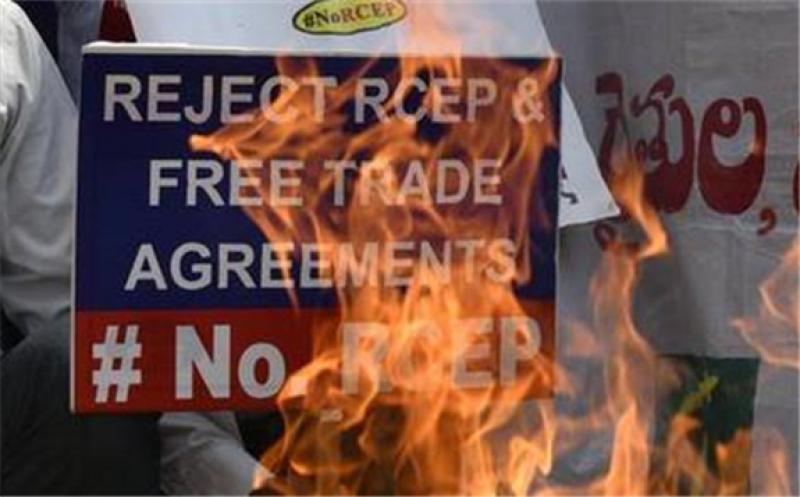New Delhi to avoid FTAs that are actually trade pacts with China ‘by stealth’, say officials

India will not re-join the Regional Comprehensive Economic Partnership (RCEP) on the existing terms as its decision to walk out was primarily to protect the interests of the poor and vulnerable sections, including farmers and the small scale industry, who were threatened by the pact, a senior government official has said.
“Allegations that India spoilt the deal by putting in last-minute deal-breaking conditions are far from the truth. Indian negotiators had been consistently raising concerns on key issues including the unintentional market access it would have to provide to Chinese goods because of relaxed rules of origin (ROO). India could not join an agreement where its primary concerns were ignored,” a government official told BusinessLine.
Fifteen countries, including the ten-member ASEAN, China, Japan, South Korea, Australia and New Zealand, signed the ambitious RCEP deal, which is a free trade pact covering goods, services and investments, on Sunday, and decided to keep the door open for India, which was to be the sixteenth member of the bloc but had exited the negotiations last year due to differences.
Trade deficit
The possibility of India re-joining the talks, however, seems to be a distant proposition as the government’s stated policy now will be to avoid joining free trade agreements (FTAs) which turn out to be a trade pact with China “by stealth”, the official said.
Moreover, India’s trade deficit with RCEP nations increased from $7 billion in 2004 to $78 billion in 2014 while its deficit with China, currently, is more than $50 billion, the official said. The individual FTAs that India has signed with RCEP countries including ones with the ASEAN, South Korea and Japan, too, haven’t worked out to India’s advantage.
New Delhi, will instead now focus on possible FTAs with trading partners such as the EU and the US where Indian industry could gain increased market access, but it will continue to be careful, the official added.
Consistent stance
On Sunday, RCEP signatory countries stated that they were ready to re-start negotiations with India if it submitted its willingness to join the agreement in writing. They also said that India could participate in its meetings as an observer country prior to its accession.
“India’s concerns were straightforward and were articulated several times during the negotiations. They remain the same,” the official said.
India wanted tough ROO to prevent circumvention by China and consequent flooding of Indian markets with cheap Chinese goods. It also sought an auto trigger mechanism for safeguard duties to protect industry against sudden surge in imports. India did not want to give most favoured nation status in investments (which it gives only to its strategic allies) to all RCEP members, especially China. It also sought a change in the base rate of customs duty from 2014 to 2019 so that duty cuts take place from the levels that existed in 2019 (which is much higher for India in items like electronics).